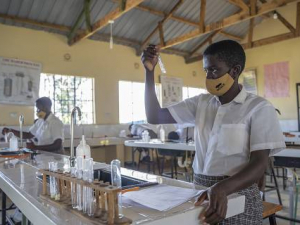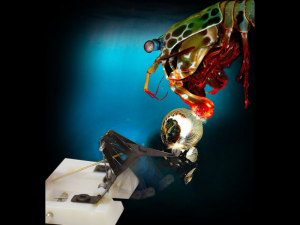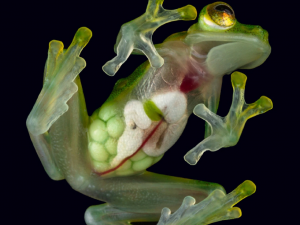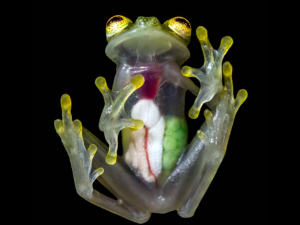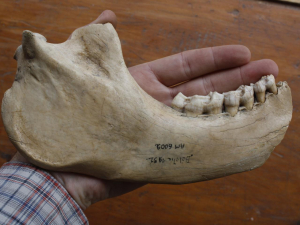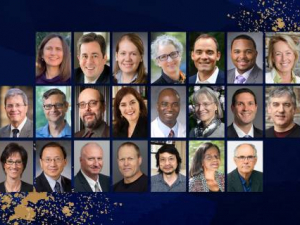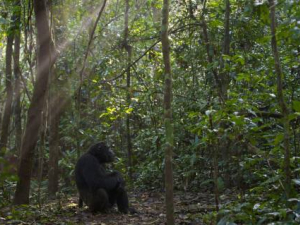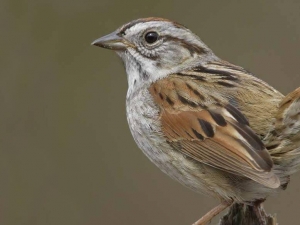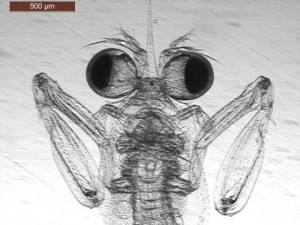The Trinity College of Arts & Sciences has announced the winners of the 2021 awards for undergraduate teaching. Given each year, the awards honor exceptionally strong educators from across the college. Teaching award recipients are selected by the Arts & Sciences Council on the basis of student evaluations, teaching statements and colleague recommendations. “These four awards are bestowed by the Arts & Sciences faculty in recognition of especially outstanding teaching,” said Arts & Sciences Council Chair… read more about Arts & Sciences Teaching Awards Celebrate Excellence Across the College »
Twenty-four million. That’s how many students worldwide could drop out of school because of the COVID-19 pandemic, according to a paper published by the United Nations last year. The data are still coming in for fall back-to-school in North America. But parents and teachers in Kenya worried the U.N. prediction was proving all too true when the 2021 school year started there. About 250,000 girls and 125,000 boys who were in school at the start of the pandemic didn’t come back to the classroom. For girls in particular,… read more about Duke-Founded Initiative Is Helping At-Risk Girls Defy the Odds in Kenya »
DURHAM, N.C. – Trickling down over rocks, surrounded by wildflowers and ferns, Appalachian mountain streams are chock-full of life. They hold some of the world’s greatest diversity of freshwater animals, including many species that can’t be found anywhere else in the world. But this biological diversity is severely threatened by mountaintop coal mining, whose downstream pollution impacts many of these species, according to a study in the September 2021 issue of the journal Ecological Applications. Researchers found … read more about Mountaintop Mining Causes 40 Percent Loss of Aquatic Biodiversity »
DURHAM, N.C. – What do frog eggs have in common with anti-aging creams? Their success depends on a group of chemical compounds called retinoids, which are capable of generating and re-generating tissues. A new study in plants shows that retinoids’ tissue-generating capacities are also responsible for the appropriate development of roots. If you’ve ever planted a radish seed, you know that the first thing it does is develop a long vertical root. Give it a bit more time, and it will get smaller roots that run… read more about Growth-Promoting, Anti-Aging Retinal at the Root of Plant Growth Too »
Nicolas Altemose started doing research on the human genome during his first year at Duke. Now, the Biology major and 2011 graduate has contributed to one of the decade’s biggest advances in science and medicine: the most complete sequencing of the human genome to date. Along with a team of 99 scientists from all over the world, Altemose helped fill in many gaps in the human genome, correct past errors and find over a hundred seemingly functional new genes. His contribution focuses on centromeres, the bundle of DNA that… read more about Duke Biology Alum Helps Unveil the Human Genome »
At an ongoing outdoor exhibit in Dallas, Texas, Duke alumnae Jessica Taaffe stands among more than 120 3D-printed statues of women who were determined to be “STEM innovators” by an initiative of Lyda Hill Philanthropies. Taaffe’s interests lie at the intersection of science and policy. Her resume includes time at the World Bank and various science outreach and communications initiatives. In interviews for the IF/THEN Exhibit, she describes being motivated by the application of science, not just the discovery process,… read more about Duke Alum Featured in 3D-printed Outdoor Exhibit »
Record high temperatures, water shortages, prolonged droughts, soil salinification. Things aren’t exactly looking up for fruit and produce growers. Lucia Strader, an associate professor in Biology, has just been awarded a $3.36 million grant from the National Sciences Foundation (NSF) to try to help. Along with Drs. Ross Sozzani, from North Carolina State University, and Max Staller, from the University of California, Berkeley, Strader is proposing a new method that would allow scientists to improve plants’ resistance to… read more about Biology Professor Lucia Strader Awarded $3.4 Million to Revolutionize Transgenic Plants »
Duke University has awarded distinguished professorships to 22 faculty members representing seven Duke colleges and schools. “Our honorees are recognized as international leaders in a diverse range of fields,” said President Vincent Price. “Their research has already had a significant impact on broader society, helping to improve lives and shape our understanding of the world.” The honorees are the “successors of faculty leaders who helped define the university’s commitment to ethical scholarship, leadership… read more about Duke Awards 22 Distinguished Professorships »
Richard Hilleary, a postdoc in Sheng Yang He’s lab, was awarded a two-year fellowship to identify and leverage molecular mechanisms that render some plants more resilient to increases in temperature. The NIFA fellowship is part of the United States Department of Agriculture (USDA)’s Agriculture and Food Research Initiative program (AFRI). This Initiative aims at funding the next generation of researchers, education, and extension professionals in the food and agricultural sciences. The postdoctoral fellowships in… read more about Postdoc Richard Hilleary receives NIFA fellowship from the USDA »
When he was an undergraduate political science student, Kerry Haynie was never taught about the 1921 Tulsa massacre. Nor was there much discussion about the role of race in the founding political documents of this country or much examination of how race influenced public services such as sewer lines and zoning. In one sense, a lot has changed. In 2021, Duke’s faculty includes a strong lineup of leading scholars who examine how race is embedded in issues that cross all the schools of the university. This fall, many of… read more about University Course Raises Race as a Central Element of Undergraduate Education »
DURHAM, N.C. – Special diets, exercise programs, supplements and vitamins -- everywhere we look there is something supposed to help us live longer. Maybe those work: human average life expectancy has gone from a meager 40-ish years to a whopping 70-something since 1850. Does this mean we are slowing down death? A new study comparing data from nine human populations and 30 populations of non-human primates says that we are probably not cheating the reaper. The researchers say the increase in human life expectancy is more… read more about Sweeping Analysis Concludes There’s No Cheating Old Age »
Biology. A discipline full of wonder, discovery, fancy equipment, gorgeous field sites, charismatic organisms, and jargon. Lots of jargon. So much jargon that it is sometimes hard to decipher who studies what. Enter BioGist, Duke Biology’s new podcast, which gives you just the gist of what our amazing faculty study, how they study it, and why. It also gives you a little glimpse of how cool they are when they are not hard at work (yes, faculty have real lives outside of work). BioGist is made by undergrads for undergrads… read more about BioGist, our new Podcast! »
A new Trinity College of Arts & Sciences program offering peer mentoring to Ph.D. students in their first, second or third year at Duke will begin hosting meetings this fall, and has selected the inaugural class of fellows to lead those groups. Designed as small, interdisciplinary mentoring groups each facilitated by a peer fellow, the program aims to help students flourish in their respective doctoral programs – providing a confidential space to navigate frustrations, offering a diversity of perspectives, encouraging… read more about Trinity Launches Peer Mentoring Program for Early-Stage PhD Students »
by Frank Graff - PBS North Carolina What do choirs, orchestras, bands, dancers, and athletes all have in common? If you answered they are all performers in their respective fields, you’d be correct. And what do performers do before they go on stage or take the field? They warm up, to help ensure that when it’s their time to shine, they perform at their best. Duke University researchers have discovered that birds do the same thing in the early morning, just as the sun is shining. By… read more about Why Birds Sing Loudly in the Morning »
DURHAM, N.C. -- With mosquito season upon us, people are stocking up on repellents to prevent itchy bites. Bug repellents are important because they don’t just protect against the buzzing, blood-sucking little pests -- they also safeguard against the diseases they carry, which kill some 700,000 people worldwide each year. Surprisingly, despite widespread use, no one understood exactly how most mosquito repellents keep the insects away. Now researchers are starting to uncover the first pieces of the puzzle. A new study has… read more about How One of the Oldest Natural Insecticides Keeps Mosquitoes Away »
DURHAM, N.C. – Mantis shrimp don’t need baby food. They start their life as ferocious predators who know how to throw a lethal punch. A new study appearing April 29 in the Journal of Experimental Biology shows that larvae of the Philippine mantis shrimp (Gonodactylaceus falcatus) already display the ultra-fast movements for which these animals are known, even when they are smaller than a short grain of rice. Their ultra-fast punching appendages measure less than 1 mm, and develop right when the larva exhausts its yolk… read more about Baby Mantis Shrimp Don’t Pull Their Punches »



